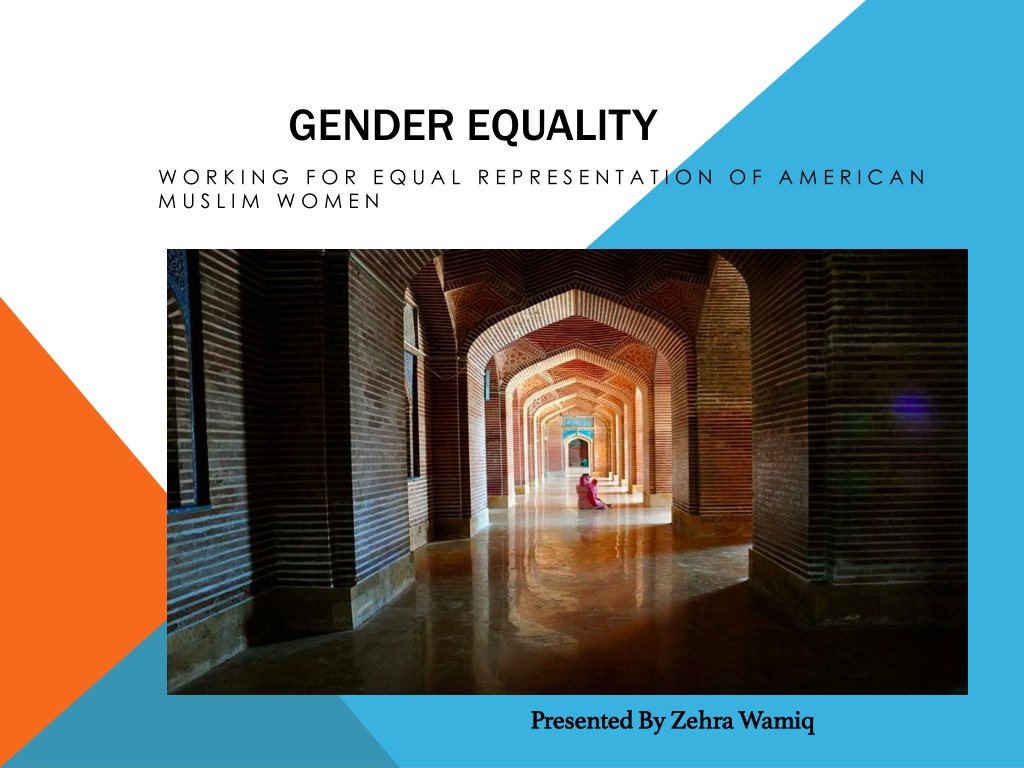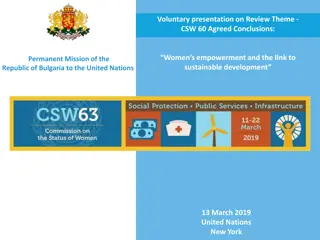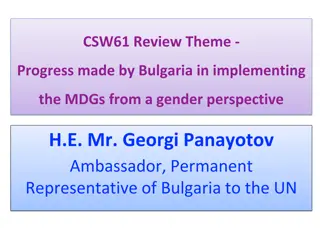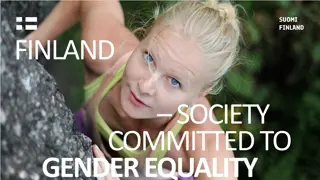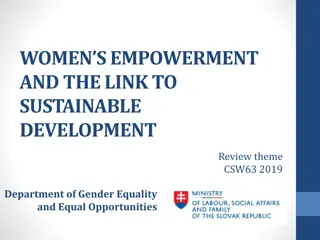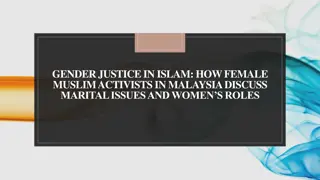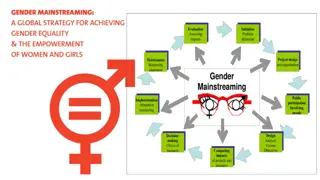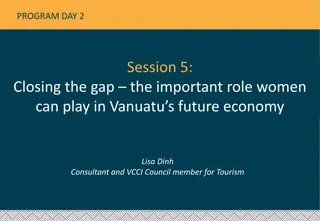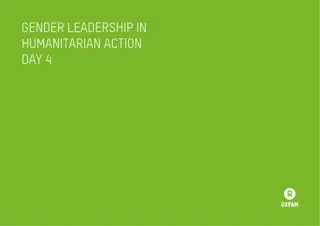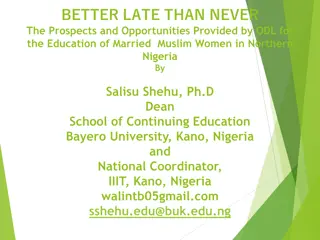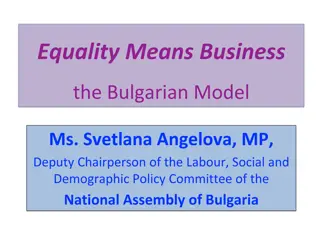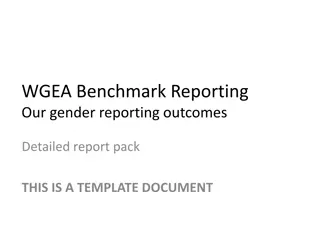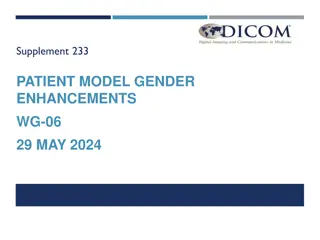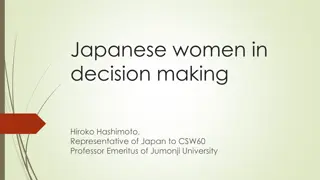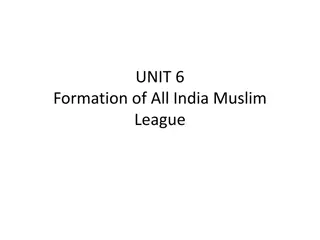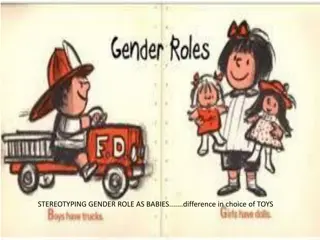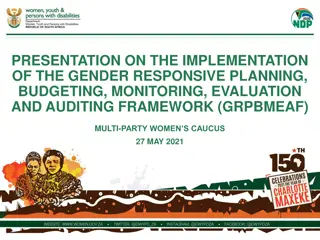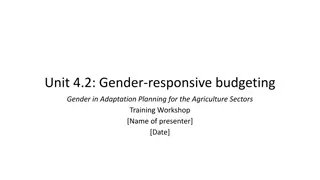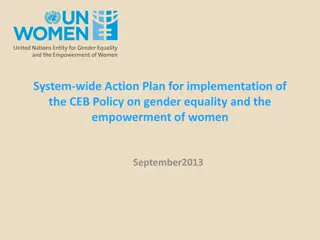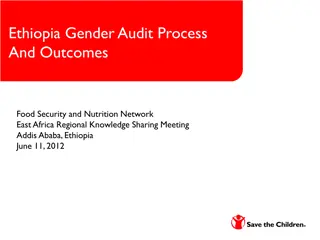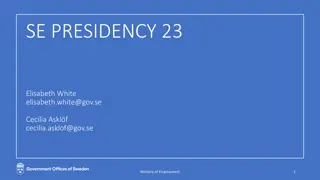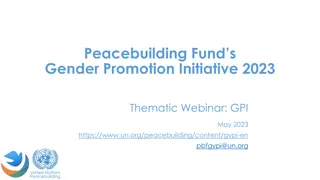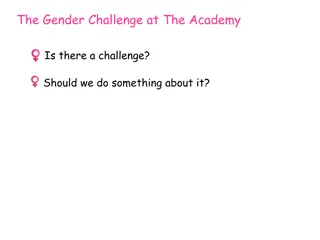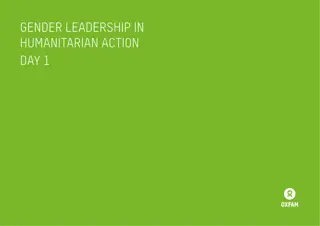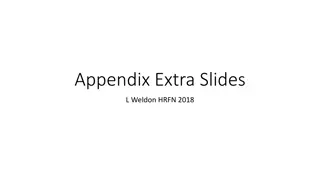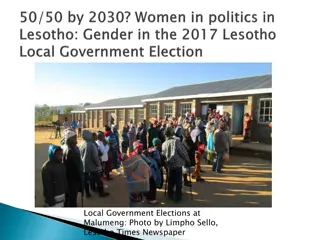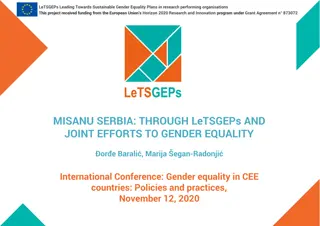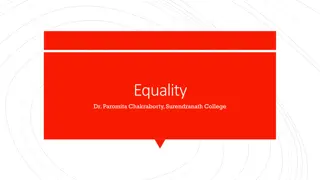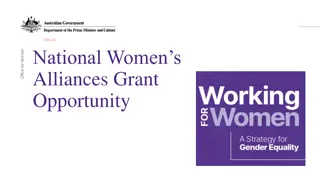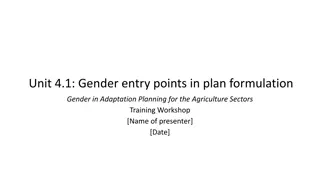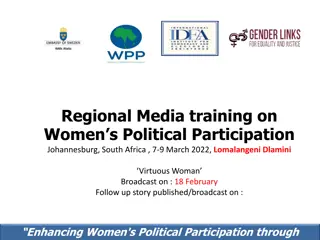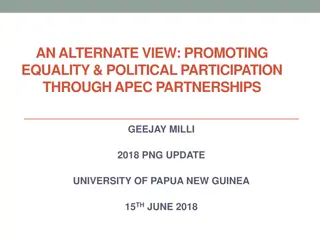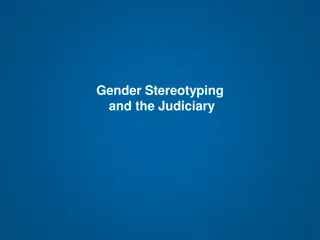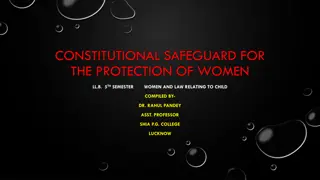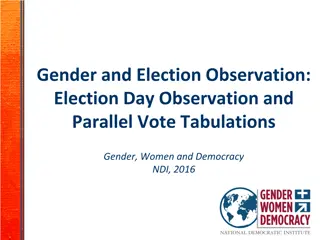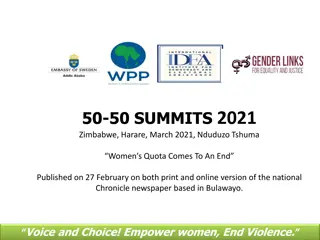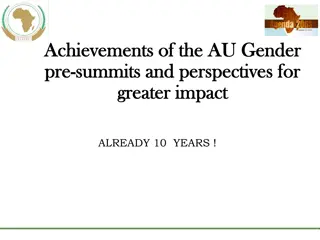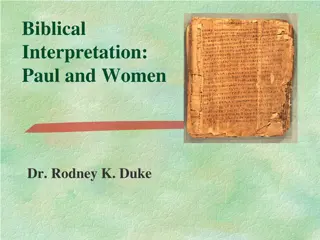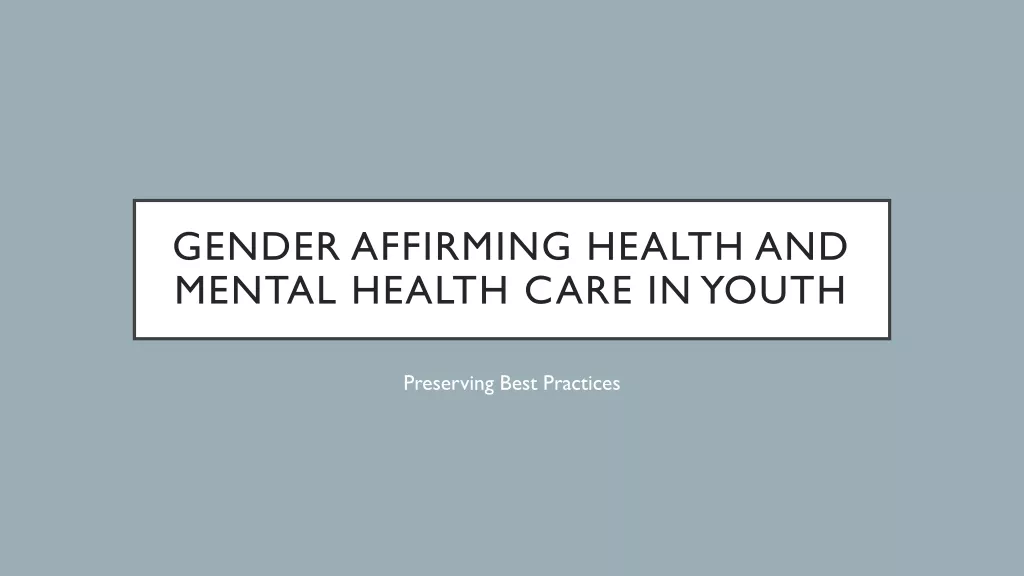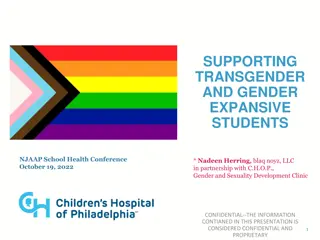Empowering American Muslim Women: Towards Gender Equality and Representation
This content highlights the challenges faced by American Muslim women in sacred spaces, advocating for gender equality and representation. It addresses the patriarchal mindset, lack of women's involvement, and the need for change, emphasizing inclusivity and empowerment through education and leadership. The one-day seminar and workshop aim to revive forgotten practices and invite community members to support women's access to mosques.
Download Presentation

Please find below an Image/Link to download the presentation.
The content on the website is provided AS IS for your information and personal use only. It may not be sold, licensed, or shared on other websites without obtaining consent from the author. Download presentation by click this link. If you encounter any issues during the download, it is possible that the publisher has removed the file from their server.
E N D
Presentation Transcript
GENDER EQUALITY W O R K I N G F O R E Q U A L R E P R E S E N T A T I O N O F A M E R I C A N M U S L I M W O M E N Presented By Zehra Wamiq Presented By Zehra Wamiq
SUMMARIZED AS Inequality And Dichotomy
SEPARATE ENTRANCE Dichotomy SHABBY ACCOMMODATIONS Beautiful Men s Space Statement Women are Unimportant
PATRIARCHAL MINDSET Disrespect Lack of women involvement Children pushed away Awkward gender relations Khutba No access Discouraged involvement Judgment
CHANGES NEEDED No Barrier Women Leaders Education of Islamic Tradition oEquality of Women oWomen Leaders oGender Etiquette oHow to live without rigid separation oChildren
A ONE DAY SEMINAR & WORKSHOP Empowering Muslim women in sacred spaces reviving the prophets forgotten Sunnah Date: January 23rd 2016 Location: Villanova University, 800 Lancaster Ave. Driscall Hall Auditorium on 1st floor. Time: 9:30 am to 3:30 pm
BY:- Inviting the leadership, their spouses and community members to learn about the practices of the Prophet and best ways to incorporate these practices in American Muslim institutions.
SPEAKERS By inviting speakers that have extensive experience in this area and have demonstrated through their works that they are committed to improving access for women to the mosques. Have proven leadership skills and are active in the decision making process in Islamic institutions.
ATIYA AFTAB ESQ Has been a member of the Islamic Society of Central Jersey s (ISCJ) Board of Trustees and Overseers for over 15 years. Was the first woman Chair of the ISCJ Board. She co-found the New Jersey Muslim Lawyer s Association and has been its Vice- President and Treasurer. Active member of the Islamic Society of North America s Masjid Development Committee and a co-founder of the Shia Sunni Alliance of NJ.
DR. JONATHAN BROWN Alwaleed bin Talal Chair of Islamic Civilization in the School of Foreign Service at Georgetown University. Director of the Alwaleed bin Talal Center for Muslim Christian Understanding. Publications include:- The Canonization of al-Bukhari and Muslim: Muhammad s Legacy in the Medieval and Modern World (Oneworld, 2009) Muhammad: A Very Short Introduction. Misquoting Muhammad: The Challenges and Choices of Interpreting the Prophet s Legacy (was named one of the top books on religion in 2014 by the Independent.)
DR. SARAH SAYEED Board member of Women in Islam, Inc., a social justice and human rights volunteer organization dedicated to the empowerment of women through knowledge and practice of Islam. She helped author the booklet, Women- Friendly Mosques and Community Centers: Reclaiming Our Heritage, and a survey report Women and the American Mosque.
DR. MUSTAFA AHMED Director of the Foundation of Islamic Education in Villanova PA. Has given presentations in international conferences on Islam and modern science and on Islamic thought in Bandung (Indonesia), Moscow, Islamabad, Durban (South Africa), Kuwait, Guyana (South America), Dakar (Senegal), and the United States; among other places. Appeared on numerous radio and television shows in the United States, United Kingdom, Kuwait, and South Africa
DR. MUSTAFA AHMED Publications include: Publications include:- - Impact of the Historical Settings of Ibn Taymiyah on his Program of Reform (in English). Narrative In the Qur an and its Relationship to Medieval Arabic Narrative Literature (in English). Shaykh-ul-Islam Taqiy-ud-din Ibn Taymiyah wa Mawqifuhu mina at-Tasawwuf (Ibn Taymiyah and His Stand on Sufism - in Arabic). History of Islamic Jurisprudence and the Emergence of the Fiqhi Schools (under publication) Rules of Verifications of the Sunnah in the Islamic Jurisprudence
REV. KAMEELAH RASHAD Office of the Chaplain, University of Pennsylvania And And And
IMAN SULTAN Studying Political Science and Journalism at Temple University Studying Political Science and Journalism at Temple University Started a parallel space for American Muslim Women called The Started a parallel space for American Muslim Women called The Muslimah Project , a project designed to facilitate intercultural unity among young Muslim Project , a project designed to facilitate intercultural unity among young Muslim women. This organization aims to foster Leadership, Scholarship and Community women. This organization aims to foster Leadership, Scholarship and Community among its members. among its members. Muslimah Writes as free lancer. Her articles has published in a number Writes as free lancer. Her articles has published in a number of publications. of publications.
SESSION ONE 9:30 AM TO 12:30 PM 1st session with a panel composed of the 6 panelists with Madiha Irfan as the MC. Leading a discussion after short presentations on the subject by the 5 speakers and a young Muslima activist Iman Sultan. This will include a Q/A session. We will break for lunch and prayers for 1 hour allowing additional ad-hoc discussions among the participants.
2ND SESSION:- 1:30 TO 3:30 PM Will be a breakout session with the attendees in 8-10 groups lead by facilitators including the panelists and others from the community with experience on this subject. They will be given a series of 3-4 questions to arrive at answers within each breakout group. This will last from 1:30 PM to 2:30 PM. Next, we will have someone from each group do a read-out of the answers the group formulated. This will last from 2:30 - 3:30 PM. We will close the day following this read-out.
